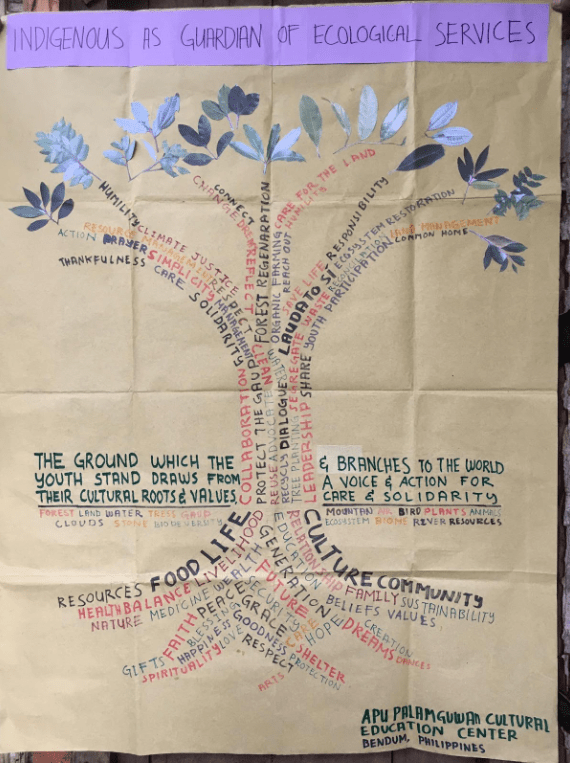“I am a housewife and a pure ‘campesina’, but I am happy to share all my knowledge. As a member of this church, I’m always helping out where I can.” Leocadia, 70-years-old, has been working with the Orchard Church in the Seville Community to develop a plot of land purchased by the church into a small farm. Her own story is a testament to personal resilience and the importance of community support.
“When the Archbishop bought this house for the church, we always dreamed of having a vegetable garden to benefit the sick and economically challenged people in our community,” Leocadia explains. “It was a very bad piece of land because the former owners had a mechanic’s workshop. With God’s help, the commitment of Father Yosbel, and the great collaboration of the brothers of the Loyola Center, we have been able to make this dream a reality.”
For rural communities in Cuba, opportunities for economic advancement are found in farming ventures and agricultural networks. Small plots of land are used for subsistence farming and provide some additional income for communities that have little access to meaningful employment and are subject to the volatility of the Cuban economy. The Network of Loyola Centers, supported by the Jesuits and associated with the International Federation of Fe y Alegría, offer workshops to help these local initiatives flourish. Experts are working with local farmers to strengthen their economic and technical understanding, improving sustainability and output.
Leocadia, along with her niece and the support of her community, has been able to convert the abandoned plot of land into a flourishing small farm with a variety of produce. “We have planted a little bit of everything,” she says. Even despite the difficulties of cultivating this land, Leocadia is generous with all the farm produce. “When we harvest the crops, we share them because this is very difficult and we always have to help those who need it most (sick, pregnant, children)” she explains “but we also sell to the community at moderate prices, and so things are smoother.”
Another issue that the Sevilla Community farms have faced is plagues and insects which continue to threaten their crops. Rather than turning to harmful and expensive chemicals, the Santiago de Cuba Loyola Center is giving assistance to members of the SIEMBRA and COMPARTE agricultural network, which was recently launched in the country. This support takes the form of essential training and formation in organic remedies. “The pests have affected several crops, but the engineer always comes and advises us with this situation. They have brought us efficient microorganisms and tobacco, because we do not use chemicals, our productions are eminently organic,” Leocadia said.
Through the support of the Loyola Centers and the new agricultural network, 13 farmer producers and workers were able to receive guidance about ornamental plant production, pest control, and agroecological practices. These practices, along with an extensive formation in fundamental accounting, creating balance sheets, preparing budgets, and developing cost sheets, have helped them stabilize their production and increase their profits. The benefits of these programs stretch into many aspects of the lives of these rural communities, ecological sustainability, economic growth, and community development just to name a few.
 We need to strive for integrity. The youth have things to say, thoughts they are committed to and will stand by. So let’s let them speak! Can they still be young and have fun as they engage in these conversations? This is an internal acknowledgment rather than an external performance, it is part of a larger process. This is what “magis” is about, it is an education for attitudes that form values, not rules and controls. It is about depth, discernment, and decisions.
We need to strive for integrity. The youth have things to say, thoughts they are committed to and will stand by. So let’s let them speak! Can they still be young and have fun as they engage in these conversations? This is an internal acknowledgment rather than an external performance, it is part of a larger process. This is what “magis” is about, it is an education for attitudes that form values, not rules and controls. It is about depth, discernment, and decisions.